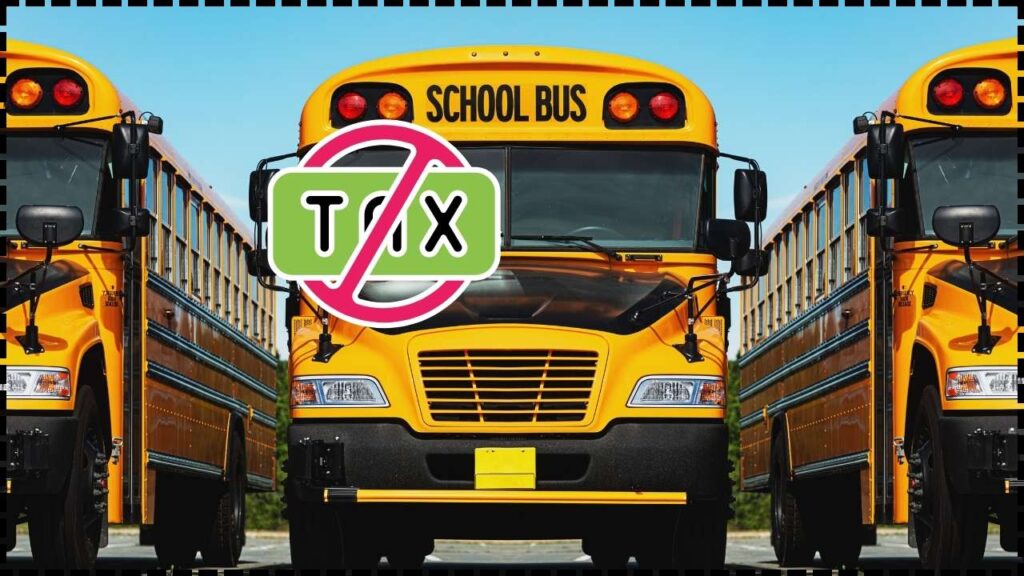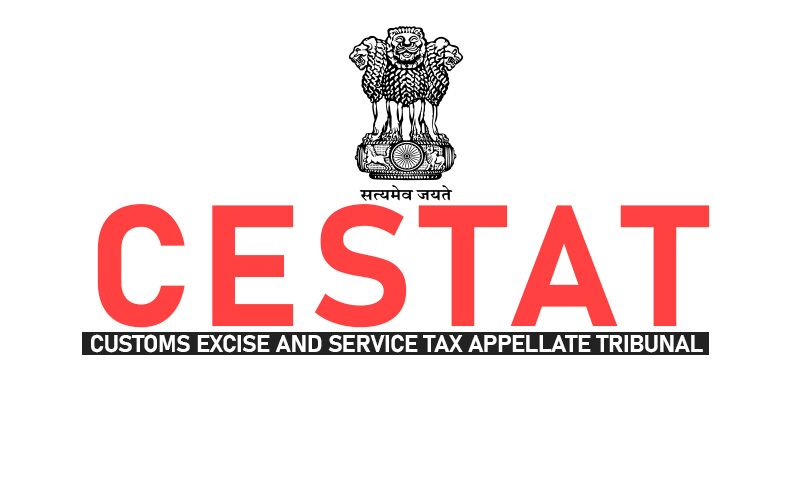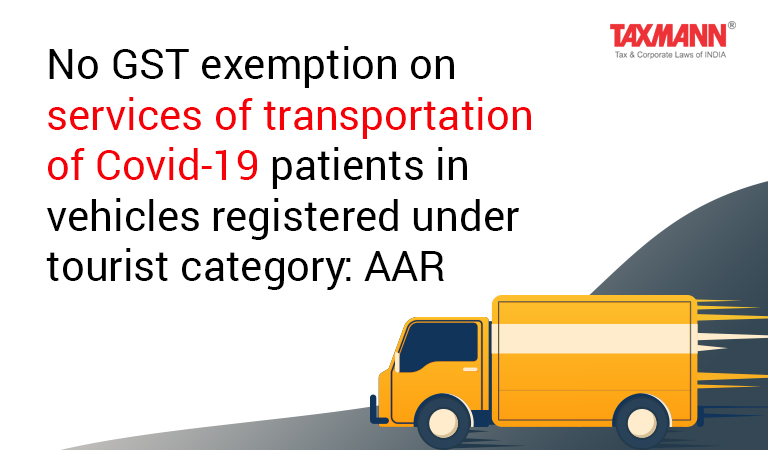CESTAT Grants Service Tax Exemption for Employee & School Transport: In an exciting move for the transportation industry, the Customs, Excise, and Service Tax Appellate Tribunal (CESTAT) has recently granted a significant service tax exemption for bus services used to transport employees and schoolchildren. This ruling has the potential to reshape the way businesses and educational institutions view their transportation services and their tax obligations. If you’re in the business of providing transportation services to employees or schools, this news is particularly relevant and could bring substantial relief. Before we dive into the details, let’s take a moment to explore the context behind this ruling and what it means for you, your company, or your school.
CESTAT Grants Service Tax Exemption for Employee & School Transport
The CESTAT’s decision to grant a service tax exemption for bus services used for transporting employees and schoolchildren is a huge win for businesses and educational institutions across the country. By clarifying the legal status of these transport services, the ruling provides much-needed relief and ensures that these organizations won’t be burdened by unnecessary service tax costs. Whether you’re an employer or a school administrator, it’s important to stay informed about this decision and make sure your transportation services align with the new guidelines.

| Key Point | Details |
|---|---|
| What Happened? | CESTAT ruled that bus services for employees and schoolchildren are exempt from service tax. |
| Who Was Affected? | The ruling applies to companies and educational institutions offering employee and school transport. |
| Legal Basis | Entry 23(b) of Notification No. 25/2012-ST exempts these services from service tax. |
| Impact on Businesses and Schools | Provides relief by reducing the tax burden on transportation services for employees and students. |
| Department’s Argument | The tax department argued that the services were taxable, but the tribunal disagreed. |
| Precedent Cases | Similar rulings have been made for employee and school transport in the past. |
| Official Resource | Full Official Notification – Ministry of Finance |
Understanding the CESTAT Ruling
For those of you who aren’t familiar with the CESTAT, it’s an appellate tribunal that handles appeals related to customs, excise, and service tax matters. When companies or individuals feel that they’ve been wronged in service tax matters, they can appeal to the CESTAT for a fair decision.
The recent ruling has put a major spotlight on bus services, specifically those that transport employees to and from their workplaces or shuttle schoolchildren. This decision, handed down by CESTAT, concluded that such bus services are eligible for an exemption from service tax under Entry 23(b) of Notification No. 25/2012-ST. This ruling has been widely seen as a victory for both employers who provide transportation for their employees and for educational institutions offering student transportation.
Now, let’s break down the key aspects of this decision.
Why Is This Ruling Important?
Before we dive into the specifics, let’s talk about why this ruling matters. Imagine you’re a business owner or the administrator of a school. For years, you’ve been providing buses to transport your employees or students. Yet, you’ve been concerned about the service tax implications. Many businesses found themselves paying hefty service tax bills on these transport services, which could add up quickly.
This new ruling clears the air. CESTAT has ruled that the transportation of employees or schoolchildren is not subject to service tax. In other words, businesses and schools offering transportation to their employees or students will no longer face this tax burden.

CESTAT Grants Service Tax Exemption for Employee & School Transport: Breaking Down the Key Legal Points
1. Contract Carriage Definition:
According to the Motor Vehicles Act of 1988, contract carriages are vehicles that are hired for specific purposes. These are not for the general public’s use. In the case of employee or school transport, the buses fall under this category. The tribunal highlighted that since the buses are hired for a fixed purpose (i.e., transporting employees or schoolchildren), they qualify as contract carriages.
2. Exemption Under Entry 23(b) of Notification No. 25/2012-ST:
This specific entry in the service tax notification provides an exemption for services related to transporting passengers by contract carriage. However, services related to tourism, conducted tours, or chartered services are explicitly excluded. The tribunal clarified that since the bus services in question were not for tourism or commercial purposes, they were eligible for the exemption.
3. Disagreement with Department’s Argument:
The department had argued that the transport services should be subject to the reverse charge mechanism under Notification No. 30/2012-ST. Essentially, this would have meant that businesses had to pay the service tax directly. However, CESTAT disagreed with this view, emphasizing that the transport was for employees or students, not tourism or charter services.
4. Precedent Cases:
The tribunal also referenced earlier decisions, including one by the Ahmedabad bench in 2023, where similar services—school buses, in particular—were exempted from service tax. The ruling reinforced the idea that transportation services like these are not commercial and thus don’t fit within the tax category for general passenger transport services.
Practical Implications for Businesses and Schools
This ruling brings clarity and relief. If you’re running a business or an educational institution that provides bus services to transport employees or students, you can now rest easy knowing that you won’t be subject to service tax for these transport services. Here’s what this means for you:
- For Employers: This exemption means that if you provide buses for your employees, you won’t have to worry about paying service tax on the cost of transportation. This could result in significant savings for your business.
- For Schools and Educational Institutions: Schools that operate buses for students will now be free from the burden of paying service tax. This can help reduce operational costs and improve affordability for both the institution and parents.
Example:
Let’s say a company like TechCorp provides buses to shuttle its employees from different locations to the office. Under the old system, TechCorp had to pay service tax on these transportation services, which added up quickly. With the new ruling, TechCorp will no longer have to pay service tax for this transportation. This not only saves money for the company but also makes the process smoother for HR departments managing transport logistics.
Similarly, a school like Riverdale Academy, which runs a fleet of buses to transport students, can now cut down on operational costs. These savings can be redirected towards other student welfare programs or improvements in the quality of education.

What Should You Do Now?
If you’re in a position where your business or school provides transportation services to employees or students, here are some practical steps you should consider:
1. Review Your Current Contracts:
Ensure that the agreements you have with transportation service providers align with the ruling. Make sure the services fall under the “contract carriage” category to qualify for the exemption.
2. Consult a Tax Professional:
While the ruling provides clarity, it’s always a good idea to consult with a tax expert or accountant to ensure you’re fully compliant with all legal requirements. Tax laws can sometimes be tricky, and a professional can help you navigate the details.
3. Plan for Potential Refunds:
If you’ve already paid service tax on your employee or school transportation services, you may be eligible for a refund. Consult with your accountant to see how to proceed with claiming this refund.
4. Stay Updated on Future Rulings:
Tax laws and rulings can change, so it’s important to stay updated on any further changes to the law. This ensures that you continue to operate within the legal framework.
Expanding the Scope of Exemptions: Could More Categories Be Next?
This ruling paves the way for businesses and schools that are already benefiting from this exemption. However, what does the future hold? Could other services related to employee welfare or educational infrastructure be eligible for similar exemptions?
For instance, bus services that transport employees to job sites or temporary locations for specific projects (rather than permanent office spaces) could soon be considered for similar exemptions. The Ministry of Finance and other regulatory bodies are constantly reviewing tax laws and could expand these exemptions in the future.
Maruti Suzuki Subsidiary Slammed With ₹86 Crore GST Penalty in Appellate Ruling
GST Revenue Hits ₹1.96 Lakh Crore in July — But Growth Momentum Slows
August 2025 GST Compliance Calendar: Everything You Need to Know to Stay Ahead of Deadlines










